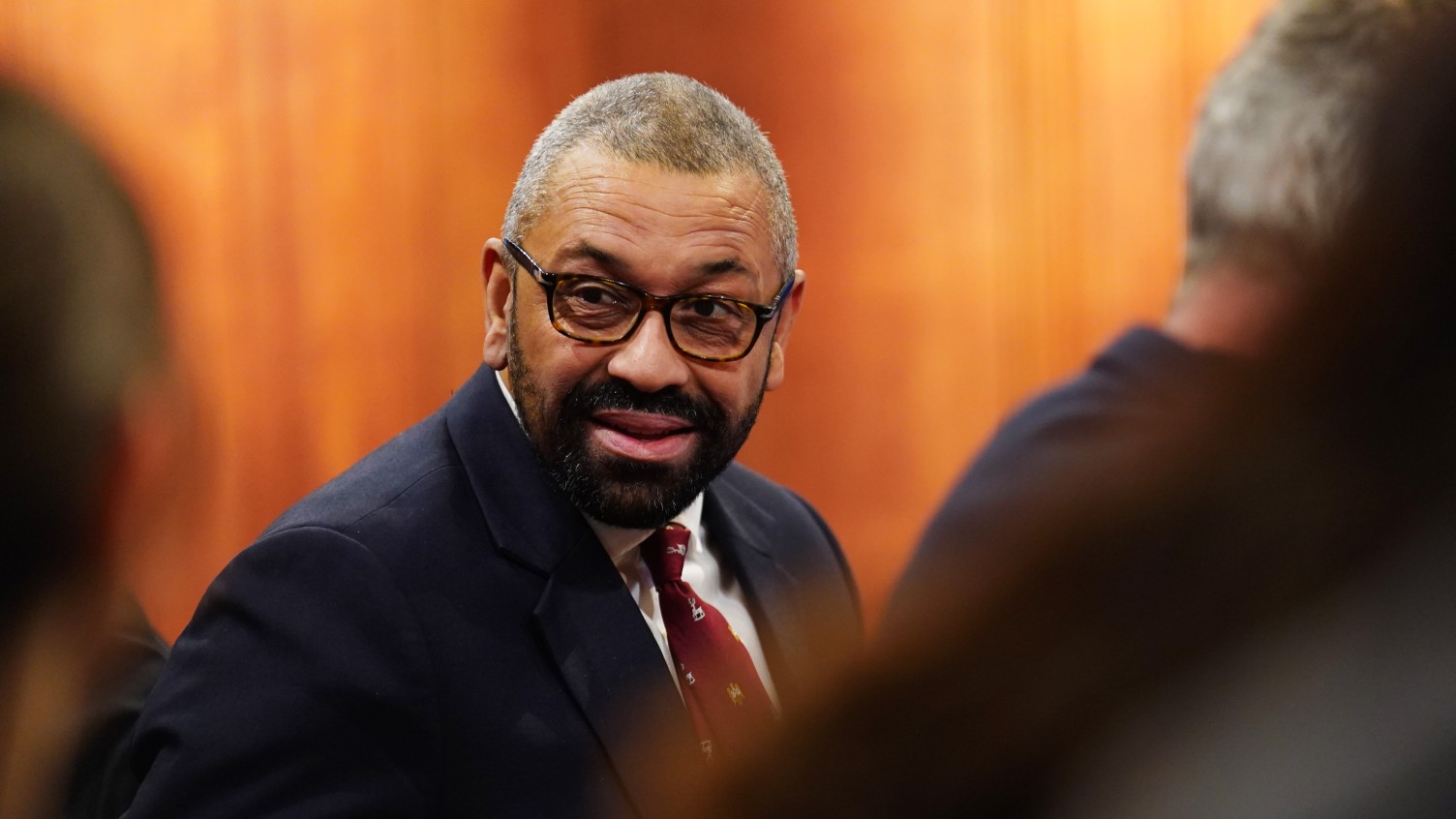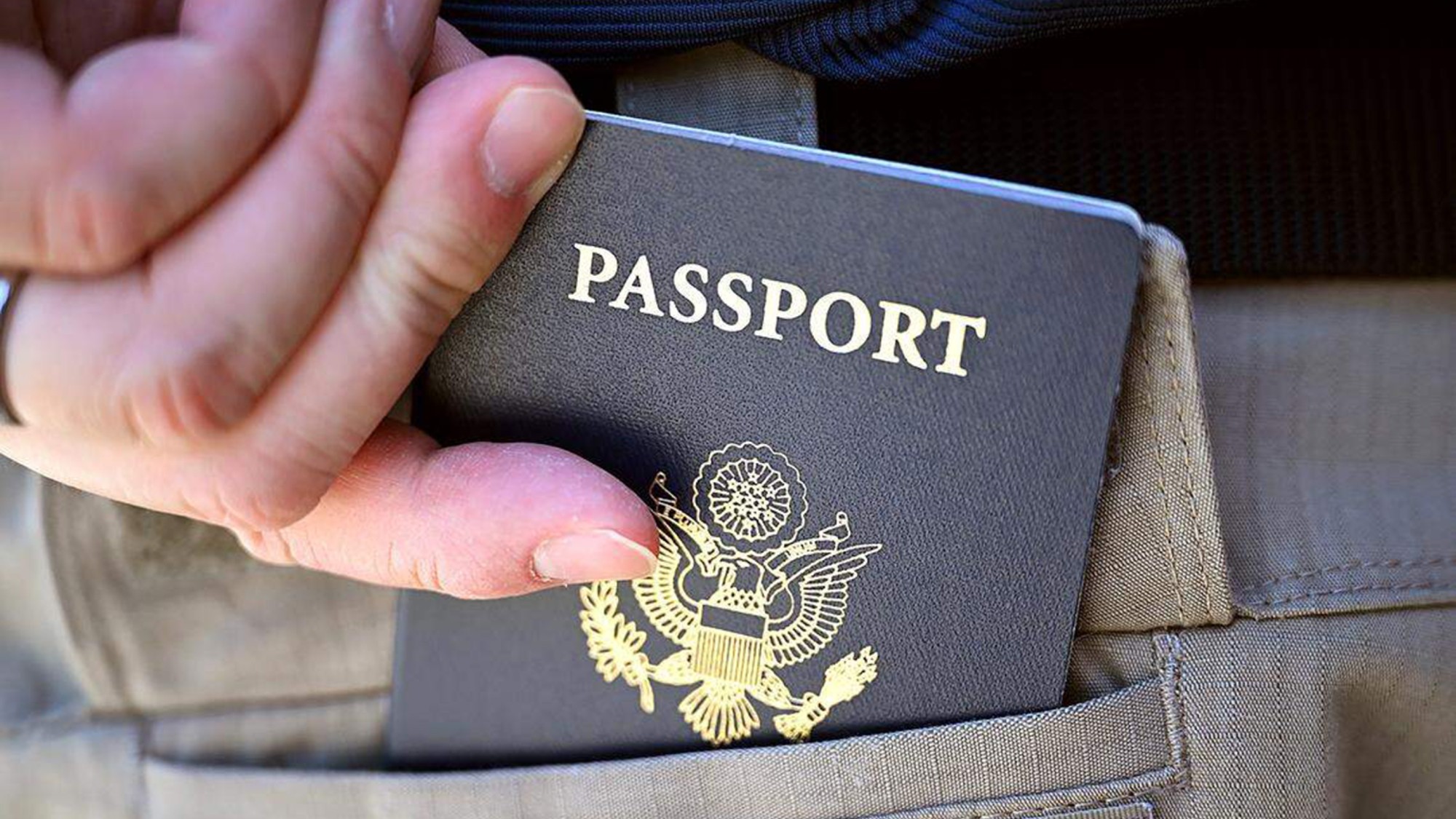How the UK's asylum case backlog is measured
Government denies 'massaging figures' to show a reduction in the backlog of people seeking asylum

A free daily email with the biggest news stories of the day – and the best features from TheWeek.com
You are now subscribed
Your newsletter sign-up was successful
Rishi Sunak's claim to have met a pledge to clear the backlog of so-called legacy asylum claims has been branded misleading as tens of thousands of people continue waiting for decisions on their applications.
The prime minister said on Monday that "relentless action" had seen the Home Office process more than 112,000 asylum cases in 2023, meeting government targets to clear the claims backlog before the end of last year.
But with almost 100,000 people currently seeking asylum in the UK, Labour accused Sunak of pushing a "barefaced lie" about the true state of the country's unprocessed asylum claims.
The Week
Escape your echo chamber. Get the facts behind the news, plus analysis from multiple perspectives.

Sign up for The Week's Free Newsletters
From our morning news briefing to a weekly Good News Newsletter, get the best of The Week delivered directly to your inbox.
From our morning news briefing to a weekly Good News Newsletter, get the best of The Week delivered directly to your inbox.
How is the UK's asylum backlog measured?
Home Secretary James Cleverly said that every so-called "legacy application" has now been processed, delivering on Sunak's 2022 promise to "abolish" the asylum backlog by the end of 2023.
So what exactly is the legacy backlog? It is the term for those applications "made before asylum laws changed in 2022", the BBC explained.
However, new figures published yesterday show that the legacy backlog does not reveal the full picture on asylum claims. The total number of outstanding rolling cases currently stands at 99,000.
This figure includes 4,500 "complex" legacy applications that are being processed but are not yet resolved, as well as the 94,000 new applications made since June 2022 that are awaiting even an initial decision.
A free daily email with the biggest news stories of the day – and the best features from TheWeek.com
The government calls this new figure the "flow backlog", which is now "larger than the legacy backlog was when Mr Sunak promised to abolish it in December 2022", said the BBC.
Has anything really changed?
The government is engaging in a game of "numberwang", said Politico, referring to a recurring sketch from TV comedy "That Mitchell and Webb Look" in which the two contestants call out seemingly random numbers to win a fictitious game show.
The figures that have just been published "are not full quarterly statistics, which are only due on 29 February", the site added. Instead, they are "ad hoc 'additional statistics' which allow the Home Office to highlight things it wants to shout about".
Shadow immigration minister Stephen Kinnock accused the prime minister of promoting a "barefaced lie" that was "an insult to the public's intelligence".
As well as the questions around how the government is measuring asylum applications, politicians and charities also criticised ministers for removing, or "withdrawing", 17,000 asylum claims.
Applications can be withdrawn "for reasons such as failing to attend interviews or appointments", explained The Independent. This can also happen "without the asylum seeker's consent" or even when the Home Office has been unable to contact an applicant or does not know where they are.
Enver Solomon, CEO of the Refugee Council, said the Home Office had "lost track of too many people who have been removed from the asylum process" who are now "at risk of sleeping rough during the winter months".
In a post on X, MP Scott Benton, who had the Tory whip removed over a lobbying scandal, wrote: "Having a de facto amnesty where you simply approve the majority of applications as 'genuine', and 17,000 people running off never to be seen again, does not count as reducing the asylum backlog."
What happens next?
Cleverly has countered that it is "completely wrong" to say his department has only hit its targets by fudging figures or approving more claims to get through them faster. "We have done it by investing money, by recruiting more people, by streamlining the processes so that now we are processing applications typically around 10 times faster," he told Times Radio.
However, the home secretary would not commit to a target for clearing the outstanding backlog, telling BBC Radio 4's "Today" programme that the "point is that it's impossible to say and I'm not going to make predictions".
The government's announcements this week may be "eye-catching", said Diane Taylor in The Guardian, but until ministers genuinely collaborate to address the "root causes of forced migration", Sunak will "never be able to deliver on his promise to 'stop the boats'".
In any case, "wouldn't it be nice if he could hold the thought that this is not just about boats and stats," Taylor added. "This is about flesh and blood: real people."
Arion McNicoll is a freelance writer at The Week Digital and was previously the UK website’s editor. He has also held senior editorial roles at CNN, The Times and The Sunday Times. Along with his writing work, he co-hosts “Today in History with The Retrospectors”, Rethink Audio’s flagship daily podcast, and is a regular panellist (and occasional stand-in host) on “The Week Unwrapped”. He is also a judge for The Publisher Podcast Awards.
-
 The 8 best TV shows of the 1960s
The 8 best TV shows of the 1960sThe standout shows of this decade take viewers from outer space to the Wild West
-
 Microdramas are booming
Microdramas are boomingUnder the radar Scroll to watch a whole movie
-
 The Olympic timekeepers keeping the Games on track
The Olympic timekeepers keeping the Games on trackUnder the Radar Swiss watchmaking giant Omega has been at the finish line of every Olympic Games for nearly 100 years
-
 ‘The West needs people’
‘The West needs people’Instant Opinion Opinion, comment and editorials of the day
-
 How ‘Manchesterism’ could change the UK
How ‘Manchesterism’ could change the UKThe Explainer The idea involves shifting a centralized government to more local powers
-
 ‘Dark woke’: what it means and how it might help Democrats
‘Dark woke’: what it means and how it might help DemocratsThe Explainer Some Democrats are embracing crasser rhetoric, respectability be damned
-
 San Francisco tackles affordability problems with free child care
San Francisco tackles affordability problems with free child careThe Explainer The free child care will be offered to thousands of families in the city
-
 The Mint’s 250th anniversary coins face a whitewashing controversy
The Mint’s 250th anniversary coins face a whitewashing controversyThe Explainer The designs omitted several notable moments for civil rights and women’s rights
-
 US citizens are carrying passports amid ICE fears
US citizens are carrying passports amid ICE fearsThe Explainer ‘You do what you have to do to avoid problems,’ one person told The Guardian
-
 Inside Minnesota’s extensive fraud schemes
Inside Minnesota’s extensive fraud schemesThe Explainer The fraud allegedly goes back to the Covid-19 pandemic
-
 Trump wants to build out AI with a new ‘Tech Force’
Trump wants to build out AI with a new ‘Tech Force’The Explainer The administration is looking to add roughly 1,000 jobs